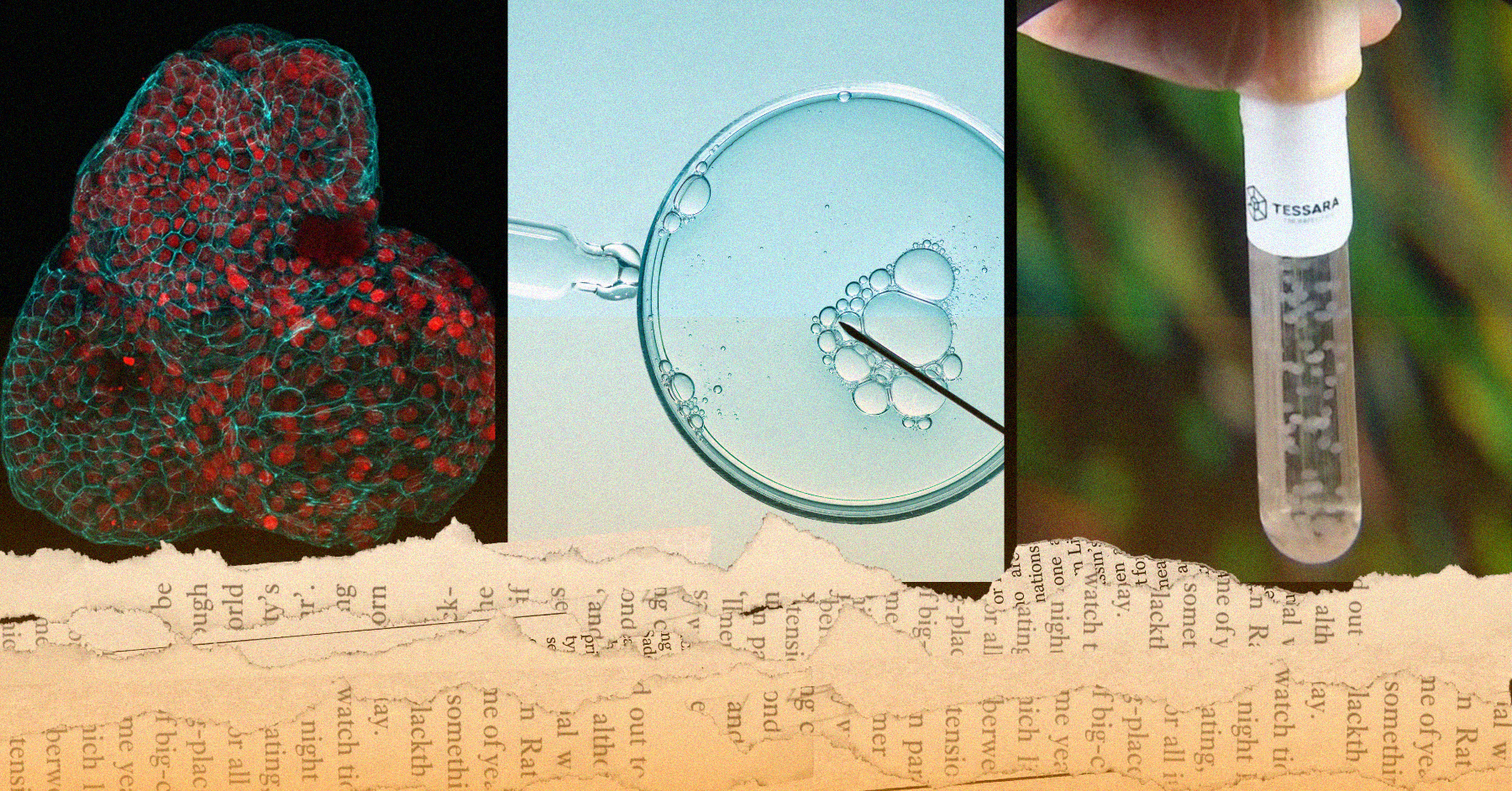
We believe that the exploitation of animals is unethical and, in turn, we would oppose the use of animals in experimentation regardless of any benefits that such research might realize for people. But it just so happens that science is also on our side.
While the animal research industry continues to breed, buy, cage, torture, and kill sentient beings, progressive scientists are busy proving that human-relevant science is not only possible but, in fact, better for us all. May 2024 highlights in science are below.
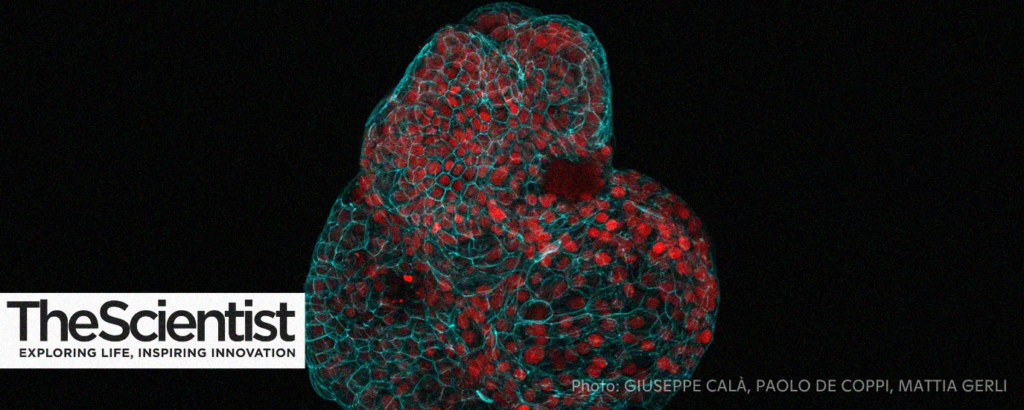
Fetal Organoids Generated From Human Amniotic Fluid
Danielle Gerhard, 5/3/2024
“Over the last decade, organoids have become an increasingly popular platform for modeling organ function and disease. However, the generation of fetal organoids is complicated by ethical and legal restrictions on the harvesting of the human tissues needed to generate mini-organs. Now . . . researchers generated fetal organoids using cells derived from human amniotic and tracheal fluids. These mini-organs offer a minimally invasive approach for disease modeling during an active pregnancy and may eventually inform the development of personalized prenatal interventions.”
“Scientists use patient cells to generate organoids that possess certain features and functions of the modeled organ while retaining the individual’s genetic fingerprint.”
“‘The aim with this is to actually be able to use the organoids as a platform for disease modeling and drug testing for these patients,’….” 📰 Full Story →

Australian Scientists Have Created Mini Human Brains, It Could End Animal Testing
Tyra Stowers, 5/4/2024
“ . . . the micro tissues in these test tubes could be a game changer in the battle against neurological diseases.”
“‘This is a human-cell-based platform that allows more reliable drug discovery.’”
“Dubbed ‘mini brains’ it’s a world first in Melbourne . . . Made for the pharmaceutical market, its makers say it will make drugs cheaper and eliminate the need for animal testing.”
“Currently, the mini brains are targeting Alzheimer’s in a test tube . . . In the future, the mini brain developers hope the treatment could be used on a wide range of problems. That could include strokes and, even, traumatic brain injuries.” 🎥 Full Story →

New AI Method Can Detect Toxic Chemicals
Nelson Walters, 5/4/2024
“By utilizing artificial intelligence, researchers at Chalmers University of Technology and the University of Gothenburg in Sweden have developed a method to enhance the identification of toxic chemicals based solely on their molecular structure.”
“The AI method developed by Swedish researchers offers a cost-effective solution for assessing chemical toxicity early on, minimizing the need for extensive animal testing. By training on large datasets from past laboratory tests, the method accurately predicts toxic properties of previously untested chemicals based on their chemical structures.”
“Comparing their AI method with existing computational tools, the researchers found that their approach exhibits higher accuracy and broader applicability . . . the researchers anticipate their potential to outperform conventional computational approaches, potentially replacing laboratory tests in toxicity assessments.” 📰 Full Story →

Organoids Used to Investigate Placenta Infections
Hannah Flynn, 5/7/2024
“Placenta organoids created from cultured human placenta cells have been used to shed light on several types of infections in early pregnancy.”
“Researchers created a cell map of infected placenta organoids to investigate immune reactions in the placenta to different infections, and the impact it might have on the developing fetus . . . ‘By mapping the pathways involved in infection during early-stage pregnancy in single-cell resolution, and developing new placental models to study this, we hope that our research can be used by the research community worldwide to help develop new ways to understand and treat pregnancy complications that impact millions of lives every year.’”
“‘Our research shows that even with pathogens that cannot cross the placenta, the secondary inflammation from the immune system may be responsible for disrupting fetal development. Identifying key processes involved with the inflammation of the pathway could help us develop pregnancy-specific treatments that minimise this in the future.’” 📰 Full Story →
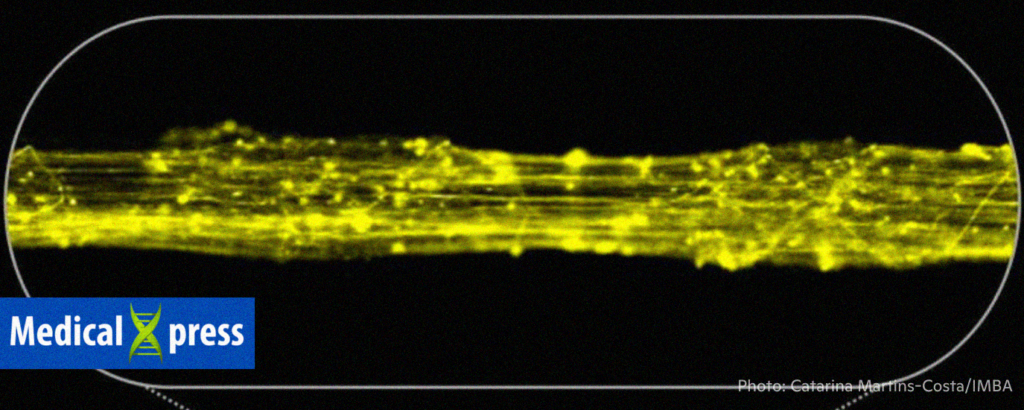
Researchers Develop First Model of the Brain’s Information Highways
Manel Llado, 5/8/2024
“The brain resembles a road network . . . like highways, thick nerve bundles connect different regions of the brain. These thick, heavily used nerve bundles, which for example connect the left and right brain hemispheres or the brain’s front and back, have not been experimentally investigated thus far.”
“The research team led by Juergen Knoblich at the Institute of Molecular Biotechnology (IMBA) of the Austrian Academy of Sciences, collaborating with Gregor Kasprian and the colleagues at the Medical University Vienna, has now succeeded in developing an organoid model of these nerve bundles.”
“‘Organoids allow us to trace all steps in neuronal development and investigate them directly in human tissues,’ Juergen Knoblich explains . . . ‘Our system provides an innovative technology, that can now be used to test gene therapies….” 📰 Full Story →
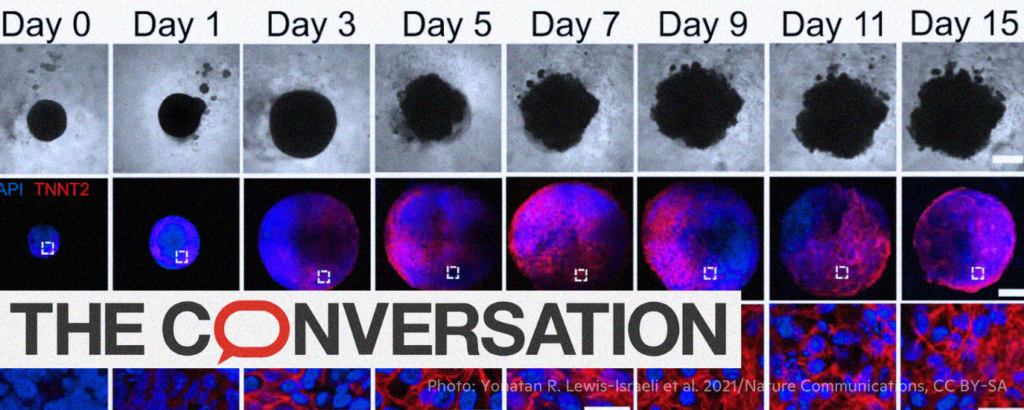
Engineering Mini Human Hearts to Study Pregnancy Complications and Birth Defects
Bret Volmert, Aitor Aguirre, & Aleksandra Kostina, 5/10/2024
“Traditionally, scientists have used animal and cell models to study heart development and disease. However, researchers haven’t been able to produce a cure for congenital heart disease in part because these models are unable to capture the complexity of the human heart. Due to ethical limitations, using human embryos for these studies is out of the question. To help researchers study heart development and complications in pregnancy, our team . . . have [sic] spent the past several years trying to create the next best thing: mini human hearts in the lab.”
“Our heart organoids have blood vessels and all the cell types found in the human heart, such as cardiomyocytes and pacemaker cells, which give them an edge over 2D cellular models. Furthermore, the electrophysiology and bioenergetics of these heart organoids are very similar to human embryonic hearts in ways that animal models aren’t.” 📰 Full Story →
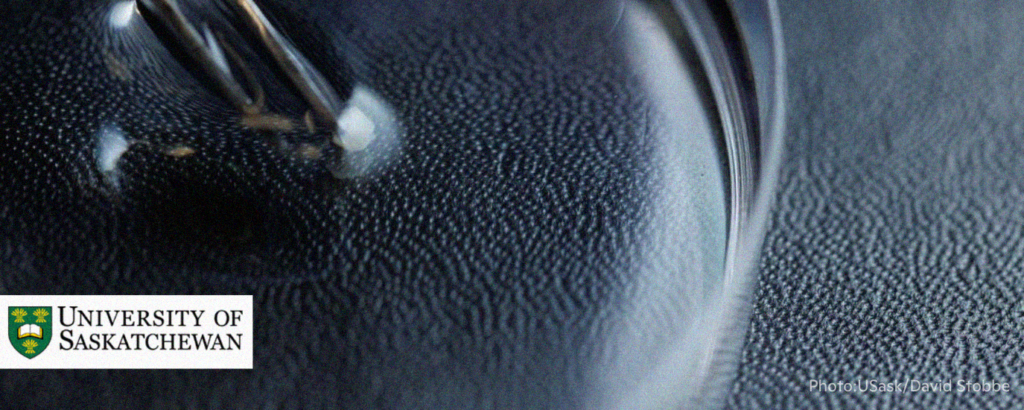
Innovative USask ‘Mini-Brains’ Could Revolutionize Alzheimer’s Treatment
University of Saskatchewan, 5/14/2024
Dr. Tyler Wenzel’s “‘mini-brain’ could revolutionize the way Alzheimer’s and other brain-related diseases are diagnosed and treated.”
“These ‘mini-brains’ are built by creating stem cells from a blood sample, and then transforming these stem cells into functioning brain cells . . . the brains from Wenzel’s lab are comprised of four different types of brain cells while most brain organoids are comprised of only neurons. In testing, Wenzel’s ‘mini-brains’ more accurately reflect a fully-fledged adult human brain, so they can be used to more closely examine neurological conditions of adult patients, such as Alzheimer’s disease. And for those ‘mini-brains’ created from the stem cells of individuals who have Alzheimer’s, Wenzel determined that the artificial organ displayed the pathology of Alzheimer’s – just on a smaller scale.”
“Wenzel said this technology has the potential to change the way health services are provided to those with Alzheimer’s….”
“The researchers are also interested in trying to expand the scope of the ‘mini-brain’ research. According to Wenzel, if they can confirm the ‘mini-brains’ accurately reflect other brain disease or neurological conditions, they could potentially be used to speed up diagnoses or test the efficacy of drugs on patients.” 📰 Full Story →
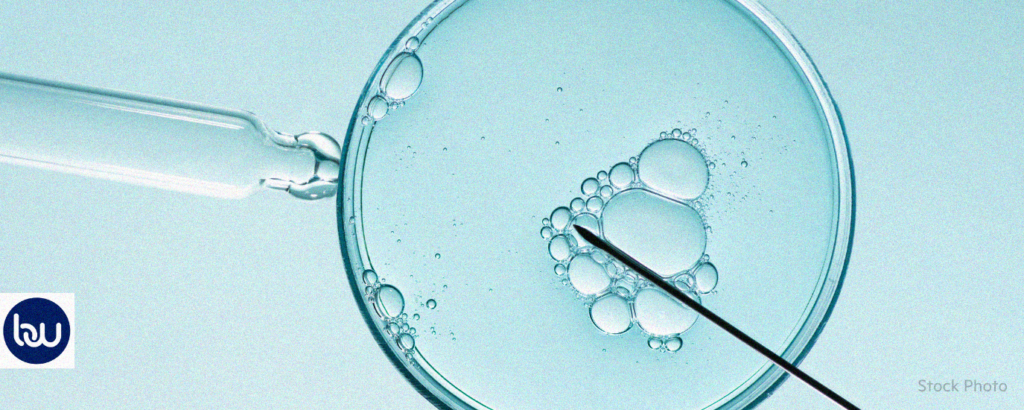
Parallel Bio Launches Clinical Trial in a Dish to Speed Drug Discovery
Business Wire, Morningstar, 5/16/2024
“Parallel Bio, a biotech company using the immune system to cure disease, today announced the release of its Clinical Trial in a Dish for studying the efficacy and safety of new immunotherapies using human models at the earliest stages of drug discovery. Five pharmaceutical companies . . . have begun testing 20 drug candidates with the alternative to animal tests.”
“Clinical Trial in a Dish creates human models using immune organoids scaled with robotics to represent the biology and diversity of a population. As a result, it more accurately and realistically predicts the safest and most effective drug candidates for human trials compared to animal models.”
“‘By developing drugs in human models from the start, our platform will shave $1 billion and 6.5 years from each drug candidate in development,’ . . . ‘Our platform aims to flip the 95 percent drug failure rate into a 95 percent success rate, leading to more drugs approved to treat patients.’”
“Clinical Trial in a Dish is Parallel Bio’s first commercially available application of its immune system platform, which utilizes lymph-node organoids at scale to replicate the humane immune system across diverse populations.”
“Clinical Trial in a Dish is able to represent both health and disease in its human models and offers key advantages over other alternatives to animal studies….” 📰 Full Story →
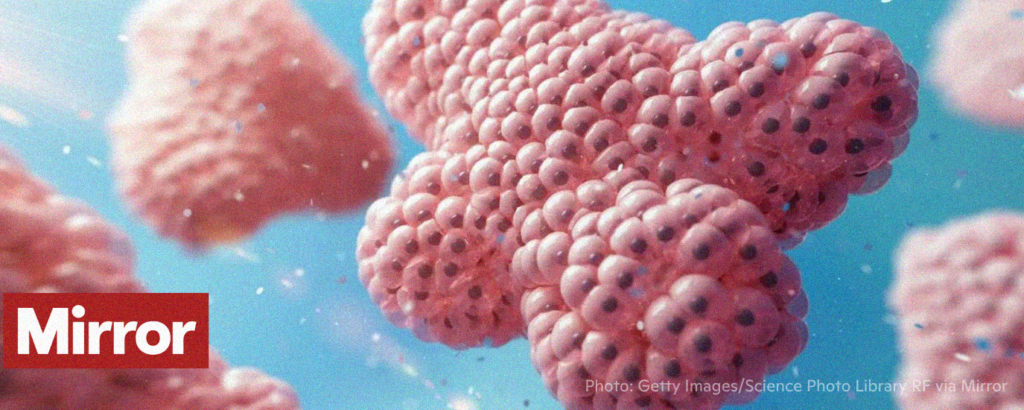
Human Mini-Lungs Grown in Lab By Scientists Will Reduce Need for Animal Testing
Miriam Stoppard, 5/19/2024
“ . . . human mini-lungs grown by University of Manchester scientists, led by Dr Sandra Vranic, can mimic the response of animals when exposed to certain materials, thereby reducing research animal numbers.”
“Grown in a dish from human stem cells, lung organoids are multicellular, three-dimensional structures that aim to recreate key features of human tissues. They are increasingly used to better understand pulmonary diseases, from cystic fibrosis to lung cancer, and infections like Covid.”
“‘With further validation, prolonged exposure, and the incorporation of an immune component, human lung organoids could greatly reduce the need for animals used in nanotoxicology research,’ says Dr Vranic.” 📰 Full Story →
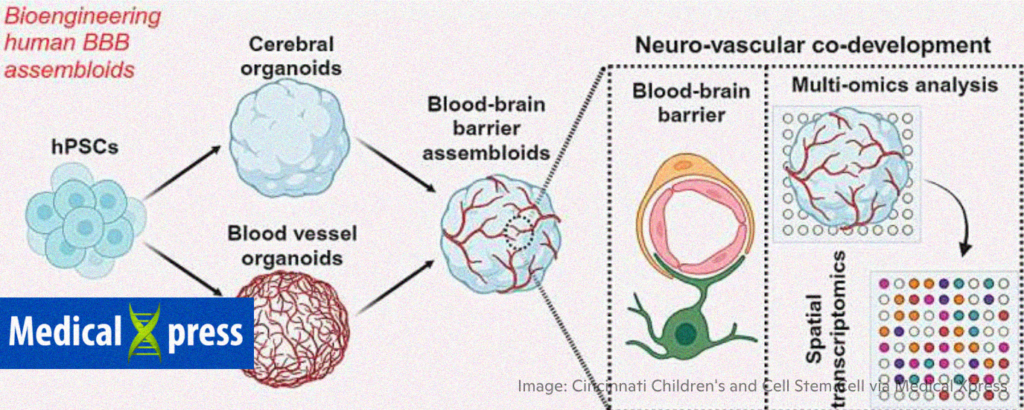
Brain ‘Assembloids’: Researchers Develop First Human Mini-Brain with Fully Functional Blood-Brain Barrier
Cincinnati Children’s Hospital Medical Center, 5/20/2024
“In a pioneering achievement, a research team led by experts at Cincinnati Children’s has developed the world’s first human mini-brain that incorporates a fully functional blood-brain barrier (BBB).”
“This major advance . . . promises to accelerate the understanding and improve treatment of a wide range of brain disorders, including stroke, cerebral vascular disorders, brain cancer, Alzheimer’s disease, Huntington’s disease, Parkinson’s disease, and other neurodegenerative conditions.”
“‘This is an important advance because animal models we currently use in research do not accurately reflect human brain development and BBB functionality.’ . . . Significant differences between human and animal brains have resulted in many hopeful new drugs that were developed relying heavily on animal models to fail later when tested in human study participants.” 📰 Full Story →
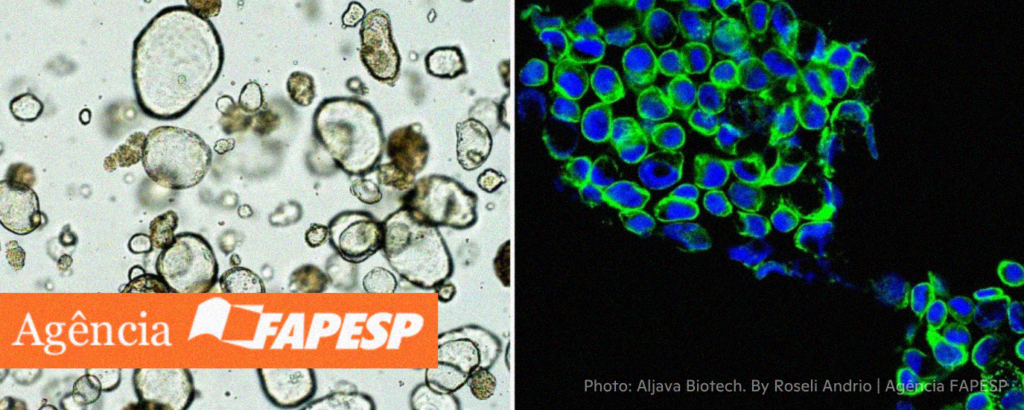
Choice of Best Medication for Cancer Treatment Can Be Facilitated by Predictive Testing
Roseli Andrion, 5/29/2024
“A major difficulty in cancer treatment with chemotherapy, targeted inhibitors or immunotherapy is choosing the best medication for each case.”
“ . . . researchers at Aljava Biotech, a startup based in Sao Paulo city (Brazil) . . . are developing a test that will provide more precise information to help oncologists choose the best therapeutic approach.”
“In the oncological field, tumor organoids, or tumoroids, are 3D models of tumors grown in vitro from cells taken from a patient’s tumor . . . ‘When tumoroids [tumor organoids] are exposed to different medications, they can show how patients will respond to each one,’….” 📰 Full Story →